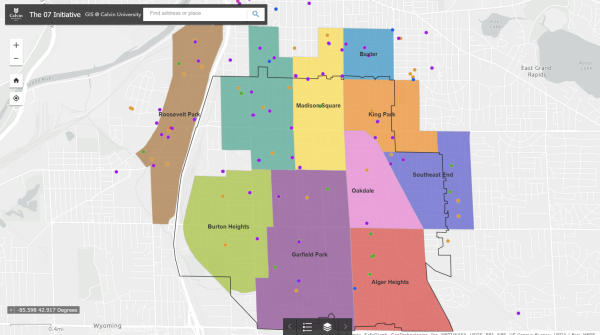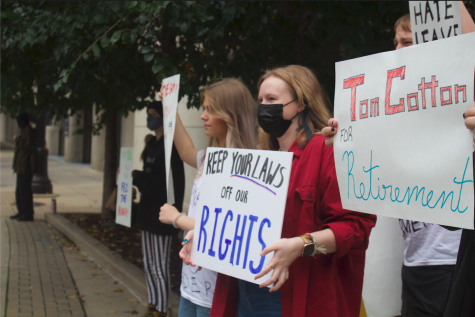New tax proposal would increase funding for Michigan roads
Michigan’s shoddy roads may be getting a long-awaited makeover.
Governor Rick Snyder signed a set of 11 bills on Monday that will rearrange the structure of state taxes and increase the sales tax in order to increase funding to repair worn Michigan roads, as well as provide additional funds to the state’s public schools and local governments.
Snyder’s signature will put the final decision to hike the sales tax in the hands of the public in a vote set for May 5.
In November, shortly after his re-election, Gov. Snyder announced that improving the conditions of roads statewide was a top priority for the end of the congressional session.
The passage of the bill package including measures to change the tax code is dependent on the passing of the public vote to change the state constitution.
The current 6 percent sales tax will increase to 7 percent if the ballot is approved by voters. The tax hike will affect all sales, and is expected to raise $1.2 billion for roads.
Currently, the Michigan sales tax applies to all purchases at the pump, which will be amended if the law passes. The new bills promote an increase in the flat-rate gas tax and remove the sales tax on gasoline.
Michigan spends less per capita on roads than any other state, according to the Michigan Infrastructure Transportation Association, despite the atrocious weather conditions that strip the roads and require extra maintenance.
The deterioration of infrastructure is statewide, and the poor road conditions impact both the safety of citizens and the economic climate of the region.
Twenty-seven percent of Michigan’s bridges are in need of repair, improvement or replacement according to TRIP, and Michigan drivers are charged $2.3 billion annually for lack of safety features on the state’s roads.
Locally, 40 percent of major urban roads in the Grand Rapids area are in poor or mediocre condition, and increased congestion along downtown arteries has led to deteriorating road conditions.
In some sense, fixing infrastructure is a matter of life and death. According to Col. Kriste Kibbey Etue, the director of the Michigan State Police, improving Michigan’s roads could save 100 lives by creating safer conditions for drivers. An average of 924 people lost their lives in automobile accidents each year from 2008 to 2012.
The majority-Republican congress passed the bipartisan legislation through a series of compromises that supported a wide range of interests, including business, labor groups, environmental advocates and educators.
In addition to increasing safety on the road, public schools would benefit from the legislation by receiving a significant boost in funding. Three hundred million dollars are expected to be allocated to the schools, equivalent to $200 per student.
The bill will ensure that the funding goes straight to local primary and secondary schools rather than higher education institutions.
Although conservative organizations oppose the tax increase on principle, Snyder emphasized that the tax hike will benefit citizens in the immediate future as well as the long run.
“This is a smart investment to make by the citizens of the state of Michigan to invest more in our roads, schools and local government,” said Snyder.







